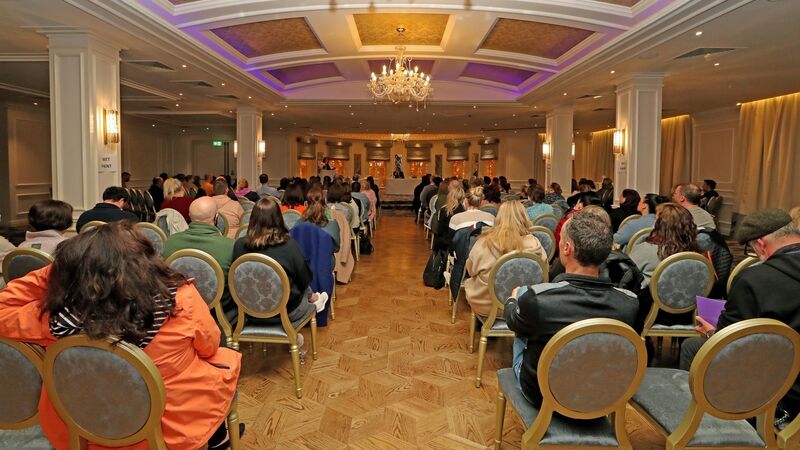Cork disability forum hears of 'children left crushed in wheelchairs they've outgrown'

A Disability Services Forum, Cork North Central, which allows parents and families an opportunity to engage directly with the Minister, at the Vienna Woods Hotel, Glanmire, Co. Cork. Picture: Jim Coughlan
Children with disabilities are being failed and damaged by an inhumane, disorganised health system, parents and school principals have told the Minister for Disabilities.
Minister Anne Rabbitte agreed that disabled children’s human rights are not currently protected at a parents’ forum in Cork, which ran until midnight. The parents' forums will be held by the Minister in each county, but five have been scheduled for Cork where problems are particularly acute.
















